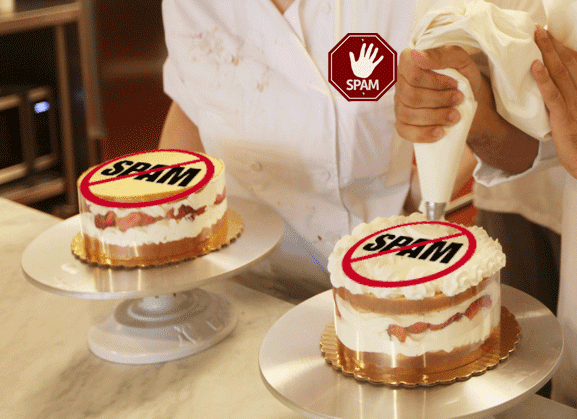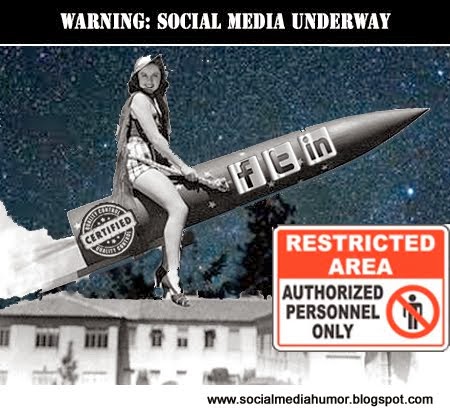Half-Baked Rules are Killing B2B Email
Over the years, I've conducted every online and traditional method of business to business (B2B) marketing available, from social media to broadcast media, from telemarketing to network marketing, from to print ads, trade shows and direct mail. But the most effective revenue generating method I have used by far has been email marketing. Nothing comes in a close second. Nothing. Unfortunately, bulk B2B email blasts are nearly impossible to do anymore.
You can thank the scammers and spammers for that. There are so many canned SPAM laws that exist restricting and banning bulk emails. The regulations are so stringent that email marketing companies require more clearance than hitching a ride onto Air Force One. These laws were created primarily to stop all those male dysfunction, mortgage refinance, Russian bride and the like emails that wanted to scam and or harass the consumer. But those SPAM laws to protect also hurt the B2B landscape irrevocably.
Take this typical business-helping-other-business scenario. Let's say you're a baker, and I sell baking supplies and ingredients. And I can sell you the same supplies at half the cost that you are paying now. Sounds interesting right? I can legally use the following methods to contact you:
It's all about permission say the email companies. All the person need to do is opt in. And all you need to is provide precise opt-in, or preferably double opt-in information. How many small to medium businesses do you know that can provide that? Now remember we are not talking about business to consumers. Well how do I get your permission if you don't know that my discount sugar company exists? That's right, see Methods 1-5.
Imagine if solicitors needed your permission before playing a commercial on your TV. Or giving your postman a list of accepted senders. Or having callers opt-in to your calling list. (Yes, it sounds like Heaven to me as well but that's not the point.) It's that email has been singled out because it can be.
I know what you're thinking. If you were a baker and you did want to reduce your supply costs you'd just go Google baker suppliers. But now we enter a new territory: search engine marketing (SEM). SEM can drain a modest advertising budget in weeks with little ROI. And I'll have to pay top dollar each time someone does click on my ad. And I'll pay whether or not they are baker. Or they were really looking for flower and not flour. Now rather than selling you those supplies at 50% of what you are paying I can only afford to sell it at 90%. The rules are half-baked and really should be changed.
Even if your email list is pristine there's no guarantee your message will make it to recipient's inbox. Gone are the days of buckshot approach to B2B business. The individual (or one-off) emails are certainly the best way to go now. As crazy as it may sound, you'll achieve better results by hiring a temp to address and send them out one by one like Christmas cards. Manageable for a few hundred names. More than that, well...
The silver lining to the B2B email downfall, if there is one, is inbound marketing. It allows companies to "seed" the internet with tweets, facebook posts, and blogs, to get noticed. And coupons, free offers and eBooks on landing pages in exchange for a valid email.
I'm not faulting the email marketing companies. They have no choice but to comply or get blacklisted, and no recourse but to shut you down or its their neck. So they always have the same answer when asked for a solution:"newsletter subscription." Really? No business decision maker today reads them anymore in this fast paced digital age. You're lucky if they check Twitter and Facebook. The one thing they'll likely read...is an email.
Follow Frank Bocchino, a digital marketing consultant who helps brands exceed their business goals using the latest tools for marketing automation, SEO, and social media.
Or contact Frank Bocchino for media opportunities.
You can thank the scammers and spammers for that. There are so many canned SPAM laws that exist restricting and banning bulk emails. The regulations are so stringent that email marketing companies require more clearance than hitching a ride onto Air Force One. These laws were created primarily to stop all those male dysfunction, mortgage refinance, Russian bride and the like emails that wanted to scam and or harass the consumer. But those SPAM laws to protect also hurt the B2B landscape irrevocably.
Take this typical business-helping-other-business scenario. Let's say you're a baker, and I sell baking supplies and ingredients. And I can sell you the same supplies at half the cost that you are paying now. Sounds interesting right? I can legally use the following methods to contact you:
- Have a team of telemarketers hound you mercilessly - I mean - call you several times a day.
- Send you flyers, brochures, coupons, and whatever junk I can find that I can stuff in an envelope.
- Subject you to annoying jingles that you (as well as every non-baker) has to listen to on the radio and/or television.
- Leave fliers in your door and on your car that will likely end up as litter.
- Corner you at a trade show.
It's all about permission say the email companies. All the person need to do is opt in. And all you need to is provide precise opt-in, or preferably double opt-in information. How many small to medium businesses do you know that can provide that? Now remember we are not talking about business to consumers. Well how do I get your permission if you don't know that my discount sugar company exists? That's right, see Methods 1-5.
Imagine if solicitors needed your permission before playing a commercial on your TV. Or giving your postman a list of accepted senders. Or having callers opt-in to your calling list. (Yes, it sounds like Heaven to me as well but that's not the point.) It's that email has been singled out because it can be.
I know what you're thinking. If you were a baker and you did want to reduce your supply costs you'd just go Google baker suppliers. But now we enter a new territory: search engine marketing (SEM). SEM can drain a modest advertising budget in weeks with little ROI. And I'll have to pay top dollar each time someone does click on my ad. And I'll pay whether or not they are baker. Or they were really looking for flower and not flour. Now rather than selling you those supplies at 50% of what you are paying I can only afford to sell it at 90%. The rules are half-baked and really should be changed.
Even if your email list is pristine there's no guarantee your message will make it to recipient's inbox. Gone are the days of buckshot approach to B2B business. The individual (or one-off) emails are certainly the best way to go now. As crazy as it may sound, you'll achieve better results by hiring a temp to address and send them out one by one like Christmas cards. Manageable for a few hundred names. More than that, well...
The silver lining to the B2B email downfall, if there is one, is inbound marketing. It allows companies to "seed" the internet with tweets, facebook posts, and blogs, to get noticed. And coupons, free offers and eBooks on landing pages in exchange for a valid email.
I'm not faulting the email marketing companies. They have no choice but to comply or get blacklisted, and no recourse but to shut you down or its their neck. So they always have the same answer when asked for a solution:"newsletter subscription." Really? No business decision maker today reads them anymore in this fast paced digital age. You're lucky if they check Twitter and Facebook. The one thing they'll likely read...is an email.
Follow Frank Bocchino, a digital marketing consultant who helps brands exceed their business goals using the latest tools for marketing automation, SEO, and social media.
Or contact Frank Bocchino for media opportunities.




Comments
Post a Comment
What say you?